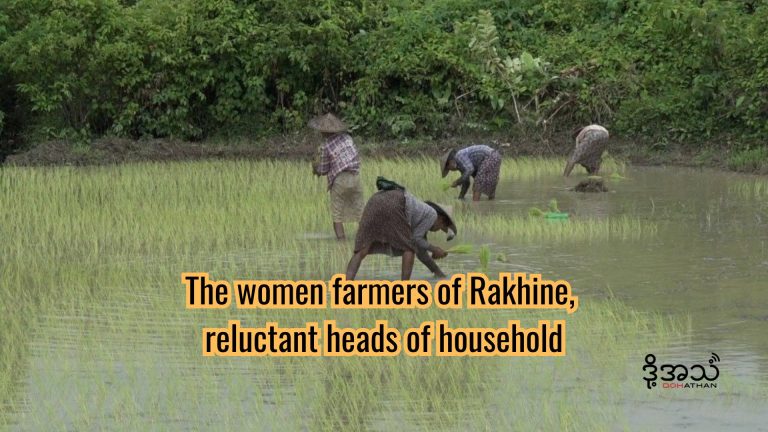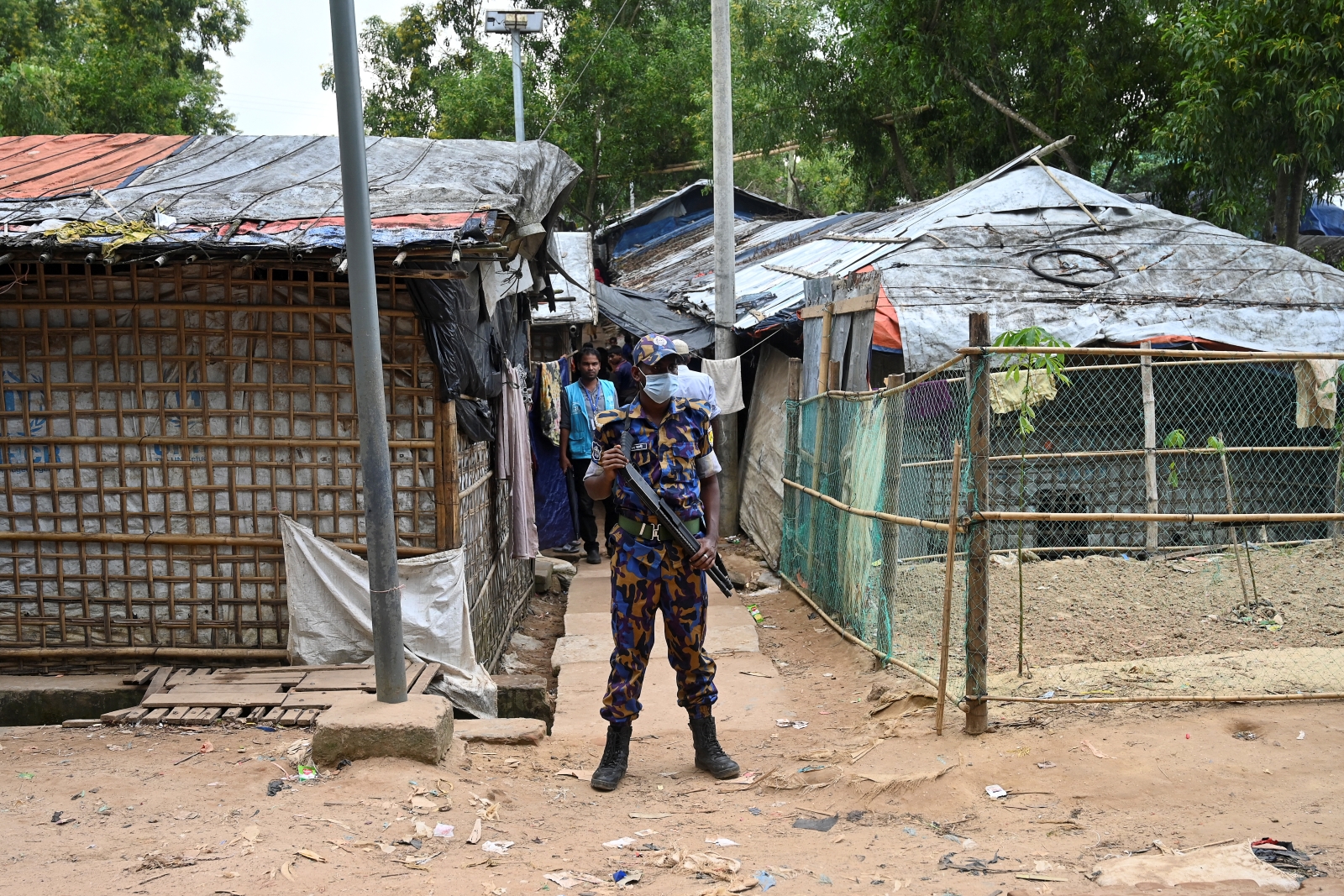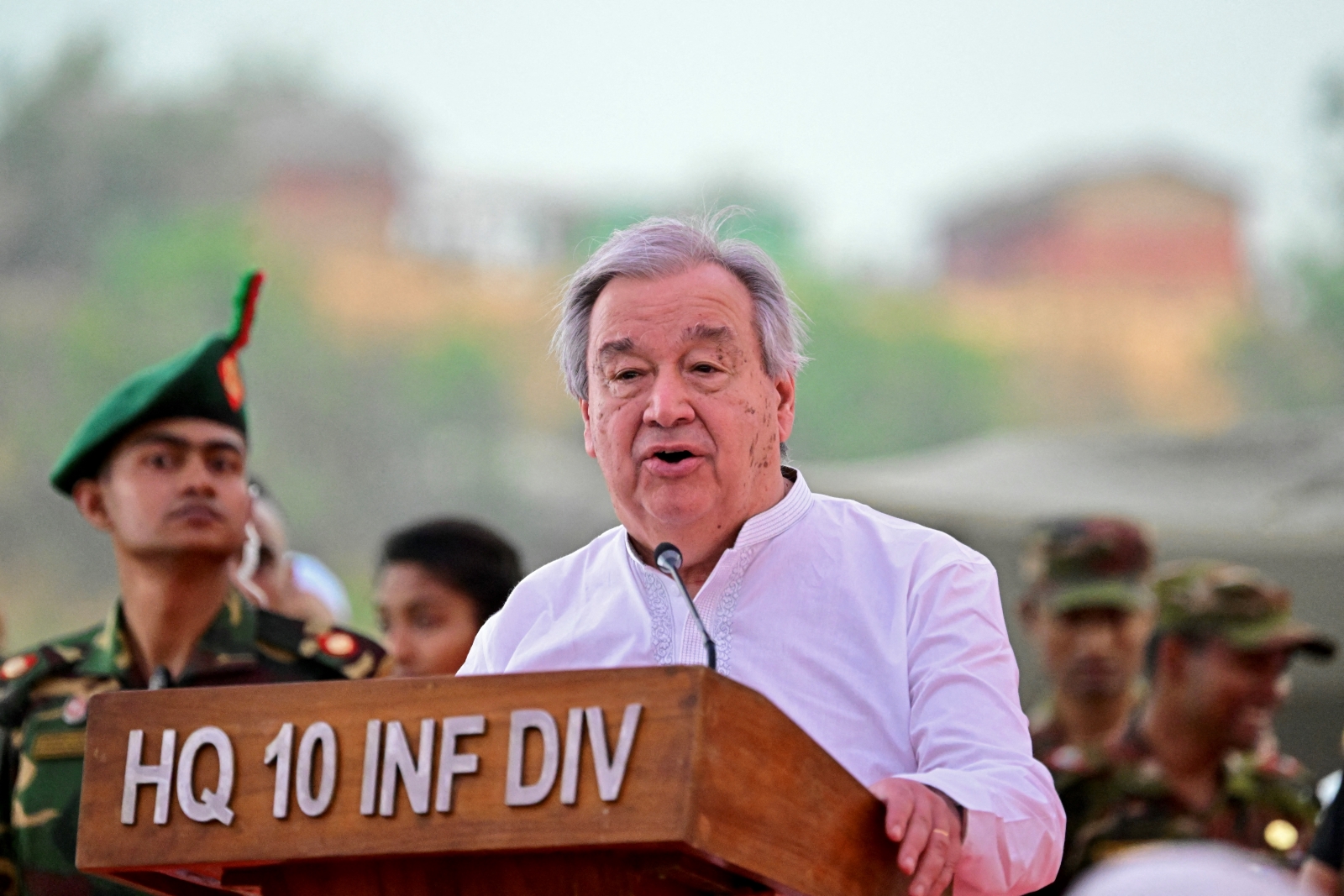DHAKA — Around 200 Rohingya Muslims fleeing a surge in violence in Rakhine State are stranded at the Bangladesh border, community leaders said Tuesday.
Bangladeshi border guards pushed back the Rohingya — mostly women and children — to the Myanmar side on Monday, community leaders told AFP.
“We heard they are 200 in number. They are mostly women and children who were only seeking a safe place to stay. They have no homes to go back,” one of the Rohingya leaders told AFP from a refugee camp in Bangladesh’s Teknaf border town.
A border guard spokesman put the figure at closer to 80.
Nearly 70 people have died in clashes with security forces since the Myanmar army swooped into Rakhine state, an area along the border with Bangladesh that is home to the Muslim Rohingya minority.
Support more independent journalism like this. Sign up to be a Frontier member.
Violence escalated over the weekend, with troops killing more than 30 people in two days of fighting, according to the Myanmar army.
Activists say the actual toll could be much higher, accusing troops of killing civilians, raping women and torching homes — allegations the army denies.
Authorities have heavily restricted access to the area, making it difficult to independently verify government reports or accusations of army abuse.
The stranded Rohingya crossed the Naf River — which divides the two countries — by boats in the early hours of Monday and were immediately sent back by Bangladeshi border guards.
“We have stopped and pushed back around 80 Rohingya people yesterday (Monday),” border guard spokesman, Major Abu Russell Siddique, told AFP.
He said the Rohingya who were pushed back were economic migrants “looking for work and treatment”, and denied the community leaders’ claim that they were victims of recent violence in Rakhine.
Another border guard commander told AFP that Monday’s group was the largest number of Rohingya pushed back since violence erupted in early October.
Nineteen-year-old Mohammad Towhid told AFP by phone that he also crossed in the early hours of Monday, but managed to avoid the border guards.
“They (Myanmar army) shot dead my sister before my eyes. I hid underneath heaps of cow dung during the attack. As the night fell, I rushed to the border,” Towhid said, speaking from a Teknaf refugee camp.
“I left my mother alone at home. I don’t know whether she survived or not,” he said, adding that troops had torched hundreds of Rohingya homes.
The UN has labelled the Rohingya as one of the world’s most persecuted peoples.
They are branded as illegal immigrants from Bangladesh by Myanmar’s majority Buddhist population despite their long roots in the country, where they face apartheid-like restrictions on movement and are denied citizenship.
But the Bangladeshi government also refuses to register the hundreds of thousands of Rohingya refugees living on its side of the border.






